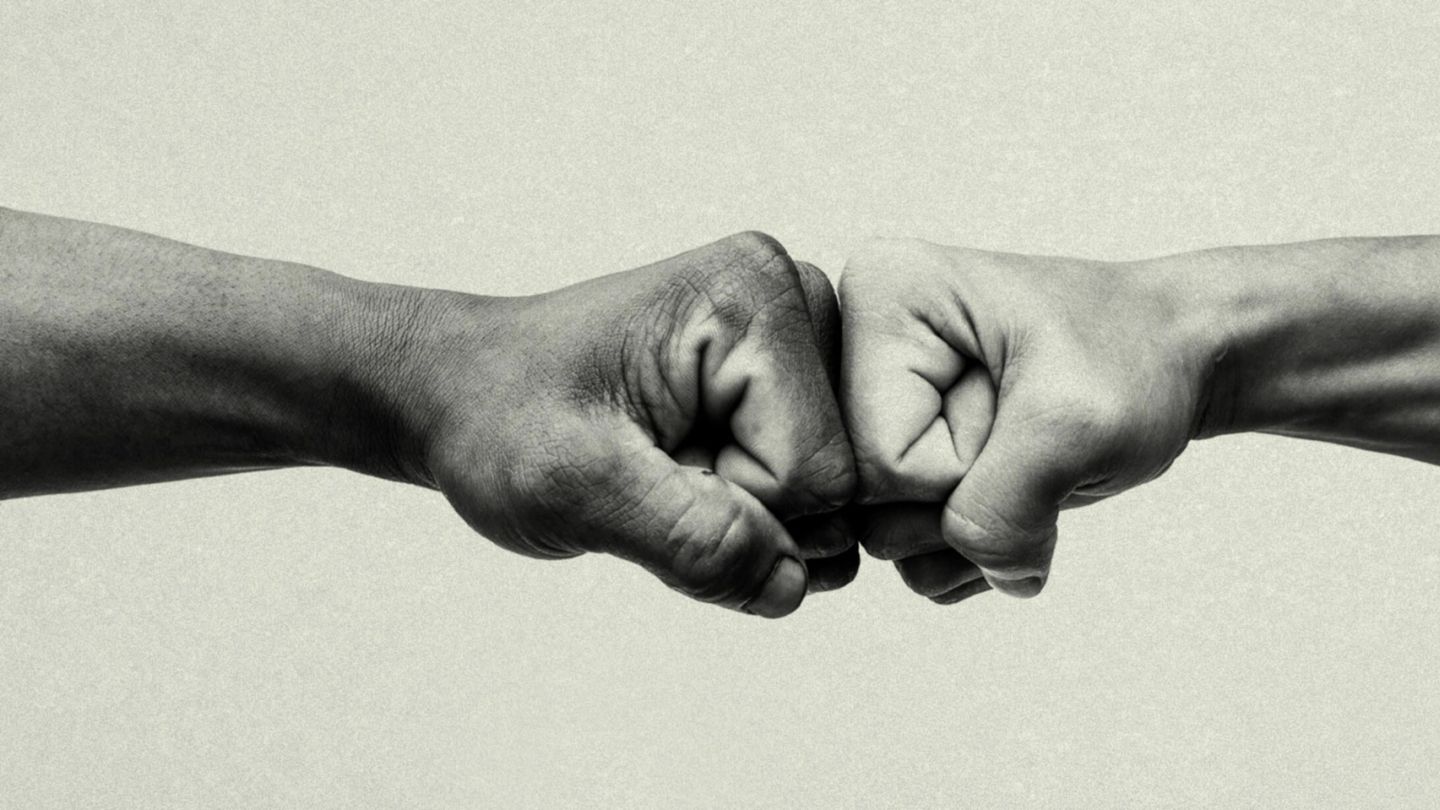

“The most important conversation you’ll ever have…” How to talk about suicide
“There’s no one way a person feeling suicidal will act. We can all be masters of disguise..."
Words: Joseph Bullmore
We don’t talk about suicide enough. Or, more accurately: we don’t talk about suicide at all. I’ve just searched through our online archives, in fact, and this is the first time I’ve written the ‘S’ word in the past five years without it being prefaced by “social”, or referencing the wrong colour of corduroy. That last bit is a little joke, of course (there is no wrong colour of corduroy — only the wrong attitude.) But the fact that I felt I had to make it is telling enough. It is easier to dance and trot and bluster around the truth than to look at it. But the facts are inescapable and unignorable once you’ve seen them. 125 people die by suicide every week in this country, or 18 a day. Three-quarters of those people are men. On average, 135 people are directly affected by every single one of those deaths — friends, family, loved ones, colleagues. Which means that nearly a million of us are impacted by suicide every year.
The more shocking truth, however, is the one that hides in plain sight. And it is brilliantly captured in a single line from a new Campaign Against Living Miserably initiative, conceived by powerhouse creative agency adam&eveDDB. “Suicidal doesn’t always look suicidal”, it says in a tagline that seems almost flippant at first — just a clever bit of copywriting — but one that gets truer and truer the more you look at it. A huge amount of people — and men particularly — appear perfectly normal in the weeks and days before they take their own lives. Cheerful, perhaps. Confident. Jokey. Their same old selves. Good value at the pub. Witty on their lunch break. Looking forward to their holidays, complaining about their coffee, singing badly in the Uber home. “There’s no one way a person feeling suicidal will act,” says Jamie Laing, who has been involved in the campaign. “We can all be masters of disguise.”
IN PHOTO – Jamie Laing
This is brought vividly to life in the new CALM exhibition, which was unveiled yesterday morning on London’s South Bank. The installation shows a sea of perfectly happy faces and grinning selfies — shots from sunny swimming pools, blokes in fancy dress, group pictures with proud parents and disgruntled toddlers. These, the exhibition tells us, are the last photos of people who died by suicide. The incongruity is completely wrenching. So much pain in so much normality.
“It’s so important to talk about suicide and to take a stand. We really believe that suicide is not inevitable, and that there are pragmatic steps we can all take to help out those who might be struggling,” says Ant Nelson, Executive Creative Director at adam&eveDDB. “The more we can humanise suicide, the more we can get people talking about it. And the more we can get people talking about it, the more lives we can save.”
So, in the tradition of our usual etiquette pieces — how to network effectively; is it ever acceptable to propose at christmas; the new rules of dinner party etiquette — we thought we’d outline a few of those practical steps below. Because some things are more important than mustard cords, or the hierarchy of oyster forks, or even the length of your mullet.
Know the signs — and trust your gut.
As the Last Photo campaign demonstrates, it can be hard — sometimes impossible — to notice that someone may be suicidal. That makes it even more important that we talk about it. Because even if there are no obvious signs, the best way to prevent suicide is talking about suicide.
That being said, if something feels off or a little weird or out of character, trust your gut. We can all be masters of disguise when we want to be, smiling and nodding in social situations to cover up what’s really going on. But here are a few things to look out for:
- Ups and downs in their mood
- Wanting to hang out less
- Talking about suicide in a vague or joking way
- Changes to their routine, especially around sleeping and eating
- Seeming flat or low on energy
- Neglecting themselves, showering less, or caring less about their appearance
- Seeming reckless or making rash decisions
- Increased alcohol or drug abuse
- Being more angry or irritable than usual
- Giving away their possessions
- Saying goodbye to friends and family as if they won’t see them again
2. Start a conversation. Or just go for a pint.
Talking about suicide can feel overwhelming and terrifying and difficult and awkward. But only through having more conversations about suicide will we get more comfortable with having them.
First of all, if you think someone could be struggling, let them know you’re there. T might feel odd at first. But it could also be the most important conversation you ever have. Don’t worry about finding the perfect words to say — there is no right or wrong, just be there and let them know they have your support.
It can be a big conversation — but that doesn’t mean you need to dive straight in or make it an intense heart-to-heart. Maybe keep it light to start. You might just want to meet them where they are or invite them to hang out somewhere you know they’ll feel comfortable. A café. A pub. In the park. There are loads of options. If it’s over the phone fire them a Whatasapp or DM. Send them a GIF. Forward that meme. It doesn’t matter how you get the ball rolling, just don’t let it go unsaid.
3. Help them get help
There’s always help out there. If someone tells you they’re feeling suicidal it will be a lot to take on. It’s really important to remember you don’t have to have all the answers. If someone you know is struggling, the best thing to do is let them know they can always speak to an expert and that help and support is available right now if they need it.
They may believe they can’t be helped or that they don’t deserve help. But emphasise that there is help there for them right now, and things will get better.A couple of resources that some people find useful:
CALM’S Get Help Guides cover a lot of the issues that can leave you feeling down or like you’ve hit a wall. They’re friendly, practical and informative, and contain pragmatic steps about finding help and moving forward.
If someone you know is feeling suicidal CALM helpline’s trained, professional staff are here every day, 5pm-midnight, with free, confidential and practical support on 0800 58 58 58 or through their webchat at thecalmzone.net
Read next: The best podcasts for checking in on your mental health


